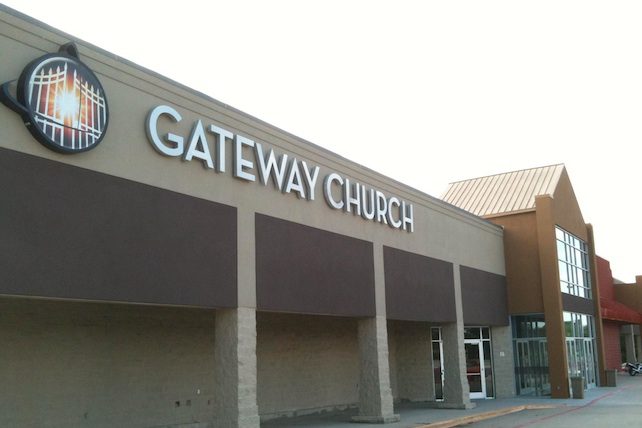Three elders who were removed from Gateway Church last fall have asked a Dallas County court to remove them from Cindy Clemishire’s defamation lawsuit. Thomas Miller, Jeremy Carrasco, and Gayland Lawshe denied defaming Clemishire, who went public last summer with sexual abuse allegations against Gateway founder Robert Morris.
Morris, who resigned as Gateway’s senior pastor last summer, has been charged with five counts of lewd or indecent acts to a child. According to Clemishire, Morris sexually abused her for five years in the 1980s, beginning when she was 12 and he was in his early 20s.
Morris claims that church elders knew the details of Clemishire’s allegations, including her age at the time. Last November, when Gateway elder board chair Tra Willbanks announced the removal of four elders, he said those leaders either knew that Clemishire was 12 at the time or knew enough details to warrant further inquiry.
Gateway Church Elders: We Didn’t Defame Cindy Clemishire
The civil defamation lawsuit filed by Cindy Clemishire and her father, Jerry Lee Clemishire, alleges that Robert Morris, his wife (Gateway’s former women’s ministry leader), eight Gateway elders, and Lawrence Swicegood (Gateway’s former media director) mischaracterized Cindy as a “young lady” at the time of the alleged abuse and mischaracterized Morris’ behavior as a consensual “relationship.”
The plaintiffs also allege that Gateway leaders gave false statements to congregants and the media regarding when they learned Clemishire was 12. According to the lawsuit, emails and documents show that church officials knew Clemishire’s age as far back as 2005. By concealing the nature of the abuse, plaintiffs allege, Gateway and its leaders profited financially.
Now three of those leaders are pushing back. In recent court filings, former elders Thomas Miller, Jeremy Carrasco, and Gayland Lawshe said they did not defame Cindy Clemishire or engage in a coverup.
Miller said any comments he made on the topic were “without actual malice,” were made as part of his duty as an elder, and were limited to parties directly involved in the situation. He wrote, “Specifically the statements were made in the course of an investigation after a report of an employee wrongdoing and updating the congregation.” Miller’s filing also argued that an individual “cannot be liable for publishing a true statement unless he omits or juxtaposes facts” to create a “false impression.”
In his general denial of Clemishire’s claims, former elder Carrasco said he isn’t responsible for damages that third parties may have incurred. According to his filing, anything he said about the situation was either true, substantially true, made without malice or negligence, not published, or absolutely or qualifiedly privileged. Carrasco also said that a statute of limitations applies, preventing Clemishire from suing him for one or more claims.
Former Gateway elder Lawshe filed a general denial but provided no additional details.

